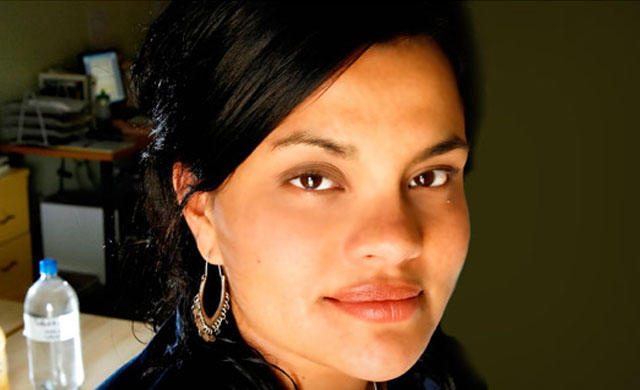
Blog |
Safe water is a right, not a privilege
by Susana De Anda, 2017 Pritzker Emerging Environmental Genius Award finalist
Safe water is a basic human right, not a privilege. Yet each year, more than one million Californians are exposed to unsafe drinking water from the taps in their homes and schools. The water crisis impacts low-income communities the most, making it harder for working families to get by. Though water problems exist statewide, they are concentrated in California’s agricultural communities, which are overwhelmingly Latino, typically high-poverty and lacking in political voice. Those most affected by the lack of safe water are also those least able to afford the extra cost of alternative water sources. Over the past ten years, Community Water Center (CWC) has worked directly with thousands of local community members, approximately 90% of whom are Latino, with average median annual household incomes of $31,000 a year, which is less than 60% of the statewide average. Nearly every community resident is part of a farmworker family, and many are either monolingual Spanish or limited English speakers.
Our work with individual communities has made it clear that in order for disadvantaged communities to have sustainable and affordable access to clean water, they must first have a voice in the decisions and policies that affect them and have access to the resources and partnerships that are needed to develop both immediate and lasting safe water solutions. At CWC, we provide capacity building and organizing support to residents in the southern San Joaquin Valley to foster community participation in water decision-making, and enable community members to effectively collaborate with agencies, organizations and decision-makers to secure safe and affordable drinking water.
Specifically, CWC utilizes three core strategies to achieves its goals: 1) Community Organizing and Capacity Building; 2) Communications and Sharing of Information, Research and Expertise; and 3) Policy Advocacy. These three strategies have remained effective and unchanged for many years and have proven sound even through regular reflection and periodic internal and external evaluation. While our three strategies remain relevant, our implementation of them must change to capitalize on timely opportunities.
I believe that drinking water solutions will only be achieved if systemic policy issues in government are informed by impacted residents who can advocate for their communities and develop solutions with decision-makers. Our focus on building human capacity and systemic change allows communities to then leverage funding and engineering capacities of others and ensure solutions are effective and sustainable for local community needs. It is instrumental to educate impacted residents on how to know whether water is safe, access immediate sources of safe water, and to work with local water boards in order to develop reliable and affordable water systems. We must also organize impacted residents to push for systemic changes in practices and programs that must be addressed at the local, regional and state levels. For example, CWC diligently works to procure new funding sources at the state level in order to address unmet small community drinking water needs, and ensure affordable water rates within low-income communities. In addition, CWC works concurrently on sustainable groundwater management which protects drinking water sources and sustainable agriculture in order ensure that farmers are utilizing best management practices to reduce groundwater pollution by nitrates and pesticides.
From our inception until now, we are committed to emboldening the voice and influence of impacted and disadvantaged communities, and encourage direct community participation in public decision-making. Our approach to addressing water challenges in the valley is unique in that it is built on the premise that we must first and foremost work to empower impacted communities to speak for and represent themselves. Impacted communities know their water problems better than anyone else, and local community buy-in is needed for any solution to be implemented. I would like to thank you all for the opportunity to share our work and look forward to working together in building powerful lasting change.
